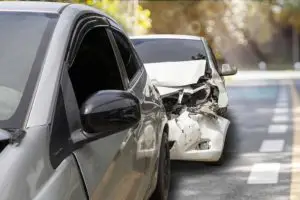
After the chaos of an accident scene, individuals who are injured or the loved ones of those killed often find themselves wondering how they can afford the expenses related to the tragedy, particularly if their injuries are more severe and costly than their personal injury protection insurance policies will cover.
Many people file personal injury lawsuits to pursue compensation for injury-related costs. Only about 4 percent of those cases go to trial, while the remaining 96 percent settle out of court. How do car accident settlements work and how can a Fort Myers car accident attorney help? Read on for more information.
Who Qualifies for a Settlement?
To register a vehicle in Florida, a driver must purchase a personal injury protection insurance policy, also known as no-fault insurance. This policy must include at least $10,000 in personal injury protection. When a driver is injured in a car accident—regardless of who is at fault—this policy can provide coverage for 80 percent of necessary medical expenses up to the policy limit as well as 60 percent of lost wages following a car accident. The policy also provides a $5,000 death benefit to family members of an insured person who is killed in a car accident.
If an individual’s medical expenses add up to more than the policy limit, or if they suffered a serious injury, they can file a lawsuit against anyone who is liable for the accident.
Florida defines a serious injury as one that results in:
- Significant and permanent loss of an important bodily function;
- Permanent injury within a reasonable degree of medical probability;
- Significant and permanent scarring or disfigurement; and/or
- Death.
Your car accident attorney will advise you if your injuries qualify as serious under Florida law.

Expect More, Receive More: Legal Support That Feels Like Family
What Damages Can Victims Recover Through a Settlement?
If your injuries are serious, you can file a personal injury claim to pursue damages. Some of the damages you may recover include:
- Medical expenses, such as those incurred through transport to the hospital by ambulance or aircraft, emergency treatment at the scene and the emergency department, diagnostic testing, physician’s services, prescription medication, surgical services, hospitalization, follow-up care, physical therapy, and rehabilitation. You can also claim expenses related to mobility devices such as crutches, wheelchairs, prostheses, and modifications to your home or vehicle that are necessary to accommodate your injury.
- Lost wages if you were too injured to work or had to miss work to attend injury-related medical appointments.
- Loss of future earning capacity or business opportunities, if your injury leaves you unable to perform the same type of work you performed before the accident.
- Repair or replacement of your vehicle, as well as the cost of renting a car while your vehicle is being repaired or replaced.
- The cost to hire someone for household services that you previously did on your own but cannot do now, due to your injury. Examples include child care, laundry, cooking, house cleaning, or lawn care.
- Physical pain and suffering.
- Mental anguish, including humiliation, anger, depression, or embarrassment.
- Loss of enjoyment of life, if your injuries prevent you from partaking in hobbies and activities that you enjoyed before the accident.
- Disability or disfigurement.
- Loss of consortium, which is the loss of care, companionship, and physical intimacy that the spouse of a seriously injured individual might experience as a result of accident-related injuries.
If you have lost a loved one in a car accident that someone else’s careless or reckless actions caused, you can recover damages through a wrongful death lawsuit. Wrongful death actions may be filed by a surviving family member such as the deceased’s spouse, child, parents, or a personal representative of the deceased’s estate.
The damages you can recover in this type of claim can include:
- Mental pain and suffering. These damages are available to spouses and children under the age of 25, as well as children over age 25 if there is no surviving spouse.
- Loss of companionship and protection. These damages are available to spouses and minor children, as well as children over 25 if there is no surviving spouse or beneficiaries who are under 25.
- Loss of support and services. These damages are available to each surviving family member.
- Medical bills and funeral services. These damages can be recovered by any family member or the estate if they paid these expenses.
- Future lost earnings. The estate can claim these damages to cover the loss of a pension and other job-related benefits.
- Loss of future accumulation of the value of the estate. These damages can be claimed for loss of future income and investments the deceased would have accrued had they survived.
What Is Involved in a Car Accident Settlement?
A car accident settlement is a process that includes the following steps:
- Gathering evidence: After an accident, you will need to gather information from the scene as well as from the healthcare facility treating your injuries, your employer, your vehicle repair company, and others. Some of this evidence includes:
- The police report;
- Photos of the accident scene, including those depicting your visible injuries as well as damage to all of the vehicles involved;
- Medical and vehicle repair bills;
- Any medical documentation that contains information about your injuries or your prognosis; and
- Any journals you have kept regarding the impact of the injuries on your life.
- Hiring an attorney: When you hire a personal injury attorney, they will begin the process of gathering evidence that can prove who is liable for your injuries and how much they likely owe you in damages.
- Establishing the value of your case: Your attorney will determine the value of your case based on your accident-related expenses and the impact your injuries have had on your life. They will start by adding up your economic expenses, such as medical bills, lost wages, and vehicle repair or replacement. Once your attorney has totaled your economic expenses, they will account for your non-economic damages, such as pain and suffering or mental anguish, by multiplying your economic damages by a number between 1.5 and 5. The more severe your injuries are, the higher the multiplier will be. In some cases, injured parties can also seek punitive damages. Punitive damages are separate from economic and non-economic damages and are intended to punish the liable party for particularly reckless or wanton behavior.
- Submitting a demand letter to the insurance company: Once your attorney has determined the value of your case, they will draft a letter to the insurance carrier of the liable party or parties. This letter will list your injuries and expenses and request the damages you seek to recover.
- Negotiating: The insurance company will conduct its own investigation of the accident and determine how much it thinks your case is worth. Once it has done so, it will begin negotiating with your attorney. At any point during this process, the insurance company may offer you a settlement. Your attorney will describe the pros and cons of accepting each offer so that you can make an informed decision about how to proceed.
- Filing a lawsuit: If no settlement is forthcoming, you and your attorney can decide to file a personal injury lawsuit. The lawsuit must be filed within four years after your accident occurs.
- Preparing for litigation: While preparing for litigation, your attorney will continue to attempt to negotiate a settlement. The other party can offer a settlement all the way up to trial and even after the trial has already begun.
- Finalizing the settlement: Once the insurance carrier for the at-fault party offers a settlement that you wish to accept, you will sign the settlement documentation and your attorney will collect your payment.
How Long Does the Settlement Process Take?
There is no “average” length of time for settlement processes. Settlements can be accomplished in a matter of months, or the negotiations might last for years. Insurance companies employ tactics to avoid making high payouts. One of those tactics involves delaying communication in the hope that the individual will give up on pursuing damages.
Another common tactic is to offer a quick, low-ball settlement almost immediately, under the pretense of being responsive to the injured claimant’s needs. Accepting a quick settlement is almost always a mistake, as the offer usually does not consider the full picture of the injured person’s medical prognosis, future medical expenses, or non-economic damages. Settlements are final, meaning you cannot go back and ask for additional money if the settlement does not cover your future expenses. It is important to never accept a settlement without an attorney’s guidance in establishing a value to your case.
Often, the most patient claimants are the ones who receive the highest settlements. The insurance company will usually exhaust all attempts to offer a too-small settlement until litigation seems inevitable or they are in jeopardy of a judge or jury deciding the case in the plaintiff’s favor.
Factors That Affect Settlements
Just as there is no average length of time for a settlement to be reached, there is also no average settlement amount in a car accident case. Each case presents its own set of facts.
Some of the factors that may impact the amount of compensation you receive in a personal injury case include:
- The liable party’s insurance policy limits. Insurance policies are almost always the source of compensation in car accident cases. If the liable party was uninsured or carried low policy limits, this can seriously reduce the amount of damages you can recover. Your attorney will work to identify all sources of liability and all insurance resources you may access for compensation.
- The severity of your injuries. More severe injuries justify your attorney using a higher multiplier when calculating your non-economic damages.
- Your age. Although it seems unfair, injuries to individuals who are in the middle of their careers often result in higher payouts than those incurred by children, young adults, or elderly people. The reason for this is that children don’t have income and young adults generally have a lower income than people further along in their careers. Likewise, elderly people are often retired and not earning an income. The more income a person makes, the more lost wages they are eligible to recover.
- Necessary treatment and recovery time. More serious injuries generally require more extensive medical treatment and longer recovery time, which often also comes with greater impacts to a person’s life and more non-economic expenses.
If you were injured in a car accident, contact a car accident lawyer can who can help you file your claim with your PIP carrier and, if appropriate, seek compensation from the careless or reckless driver who caused the crash.






